English Edition

- By CNI
- Category: English Section
- Hits: 634
CNI News
19 February 2024
The Kachin Independence Army (KIA) should have announced the rights of ethnic people in Kachin State from now on, U Kyi Myint, a political commentator, told CNI News.
The KIA should have announced the rights of Shanni nationalities in Kachin State from now on and will have to carry out to enjoy a federal union together, he said.
" I had lived in Kachin State for four years together with Shanni people. We are the same people. We share the same religion and we have the same mindset. There is a strong attachment between us. But we share the same strategy with the KIA. The way the KIA is fighting is not update anymore. Frankly speaking, we have an attachment to Shanni people. After this revolution, if we talk about federal issues, we will tell the KIA for the sake of Shanni people. We should have the opportunity to enjoy the federalism. We want to urge the KIA to make peace with Shanni people. The KIA should have announced the rights of Shanni people from now on. Now that the KIA doesn't guarantee, no wonder that the Shanni people stand together with those who guarantee them." said U Kyi Myint to CNI News.
The Shanni organizations should lay down a strategy that could cooperate with the revolutionary forces, he added.
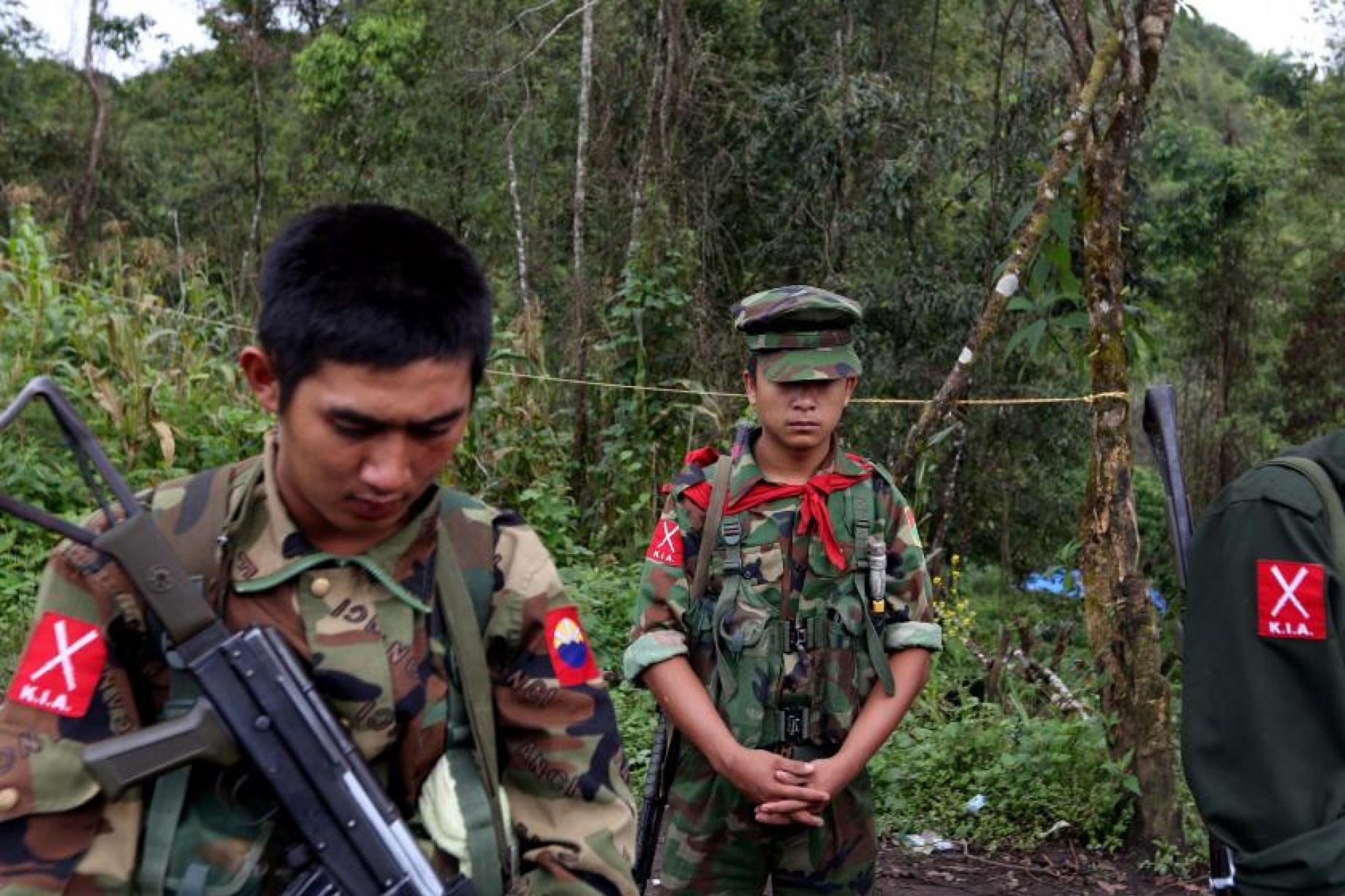
While seeing the KIA force
" The Shanni groups should not bet on the losing side. They must bet on the winning side. This is for the interests of the country and its nationality. So, they will have to change their strategy and must lay down a strategy that can join the revolutionary forces. If they demand their rights from within the policy frame, the entire Burman people will support them. We also will request relevant organizations." he said.
The KIA should not act in a way that bullies other ethnic groups in Kachin State, said a politician. All ethnic groups in Kachin state must carefully negotiate when building a federal union, U Li Paw Reh, chairman of the Lisu National Development Party (Dulei Party) told CNI News.
" The KIA accept the federalism and join the nationwide ceasefire agreement and then if a federal union is implemented, it will be necessary for all the ethnic groups in Kachin State to negotiate carefully." he said.
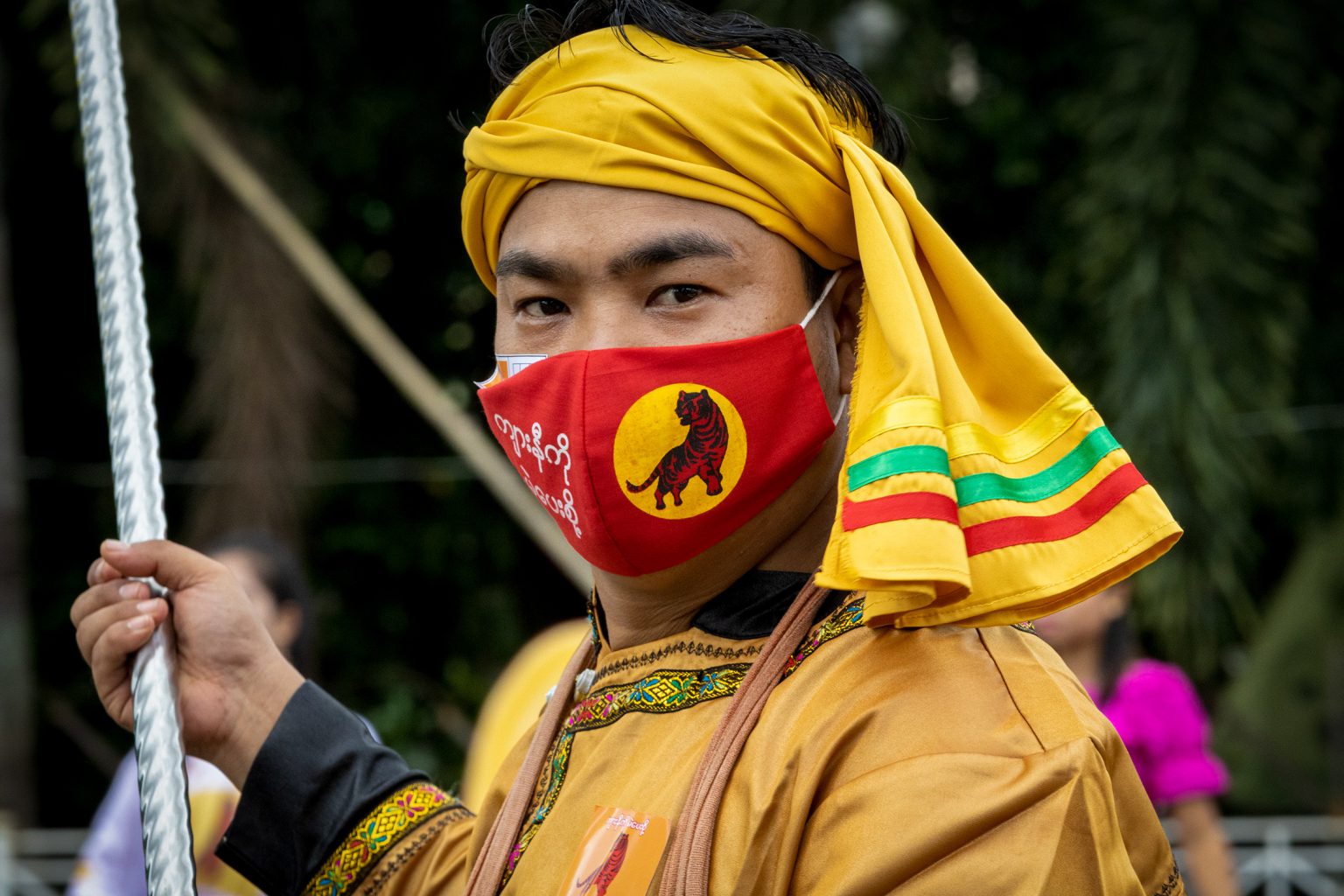
While seeing a Shanni nationality (Frontier Myanmar)
Based on the 1947 Panglong Agreement, a federal union must be implemented with the principle of 8 states and the states concerned must be based, U Kun Gawn Awng Kham, a Kachin politician, told CNI News.
" Mainly, it's necessary to implement a federal union based on the eight states. According to the 1947 Panglong Agreement, our union was built. Our union arose. So, based on it, we need to implement a federal union. Because there are 135 indigenous ethnic groups in Myanmar, it's unlikely to form 135 states. If the authorities, rights and self-determinations of the states concerned can be laid down, everyone will have equal rights. For example, in Kachin State, it is necessary to organize on the basis of Kachin people and so in Shan State." he said.
There are five Shan tribes, Naga, Burman, Rakhine, Lisu ethnic groups living in Kachin State including six Kachin tribes.

- By CNI
- Category: English Section
- Hits: 870
CNI News
19 February 2024
The number of youths who wanted to go abroad increased because they were worried after the People's Military Service Law approved, agency community and those performing QR service told CNI News.
Among those who come and enquire to apply for passport, some have to go abroad soon and others believe to hold passports compulsorily due to the current political situation, according to those who perform QR service.
Moreover, if a person wanted to get a passport quickly, he or she had to pay from 16 to 19 lakh kyats. As brokers raised service charges, market prices went up like that, a person who performs QR service told CNI News.
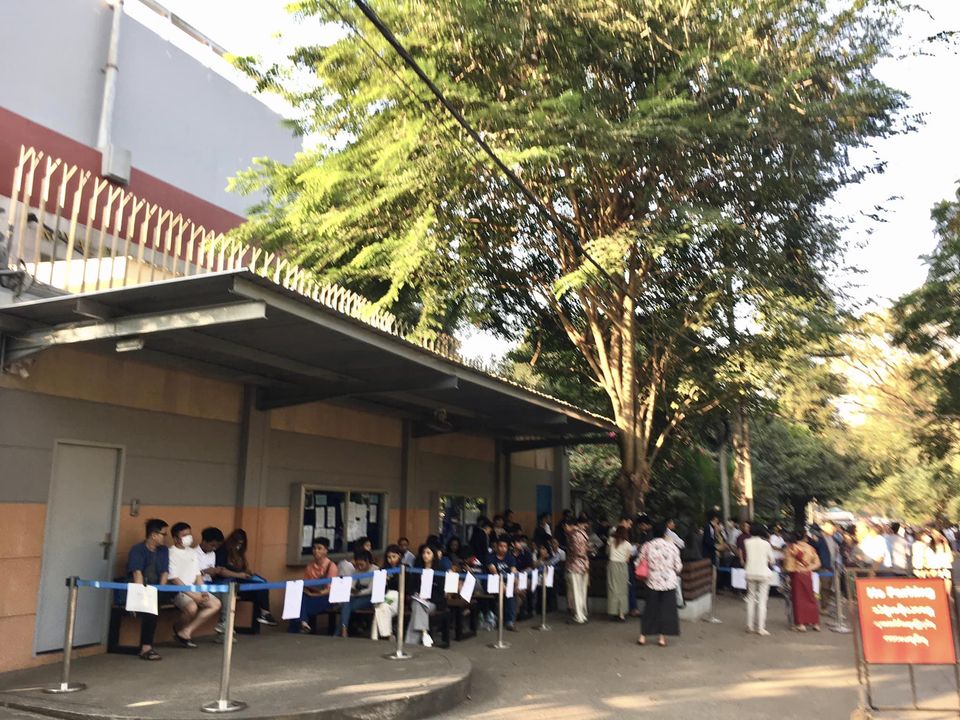
While seeing those who are waiting in line to apply for visa at the Thai Embassy
" If an office staff asked 13 lakh kyats, the broker would ask 16 lakh kyats. If the first broker ask 16 lakh kyats, the second broker ask 19 lakh kyats. In this way, the price goes up. For the time being, you can't get it quickly in Yangon. But if you can pull wire, you can get it. Currently, you can get it quickly at the offices in Naypyidaw, Pathein, Pha-an and Tachileik. But most people can't afford to get it quickly." he said.
In the past, if a person wanted to get a passport quickly, he or she could carry out at the market price through a broker. However, as there were cases of corruption
recently, the passport office does not dare to serve quickly, according to those who perform QR service.
Although it was not easy to apply for passport quickly, it was still easy to apply quickly in other towns, Ko Nay Oo Ko, from an overseas employment agency that sends workers to Japan, told CNI News.
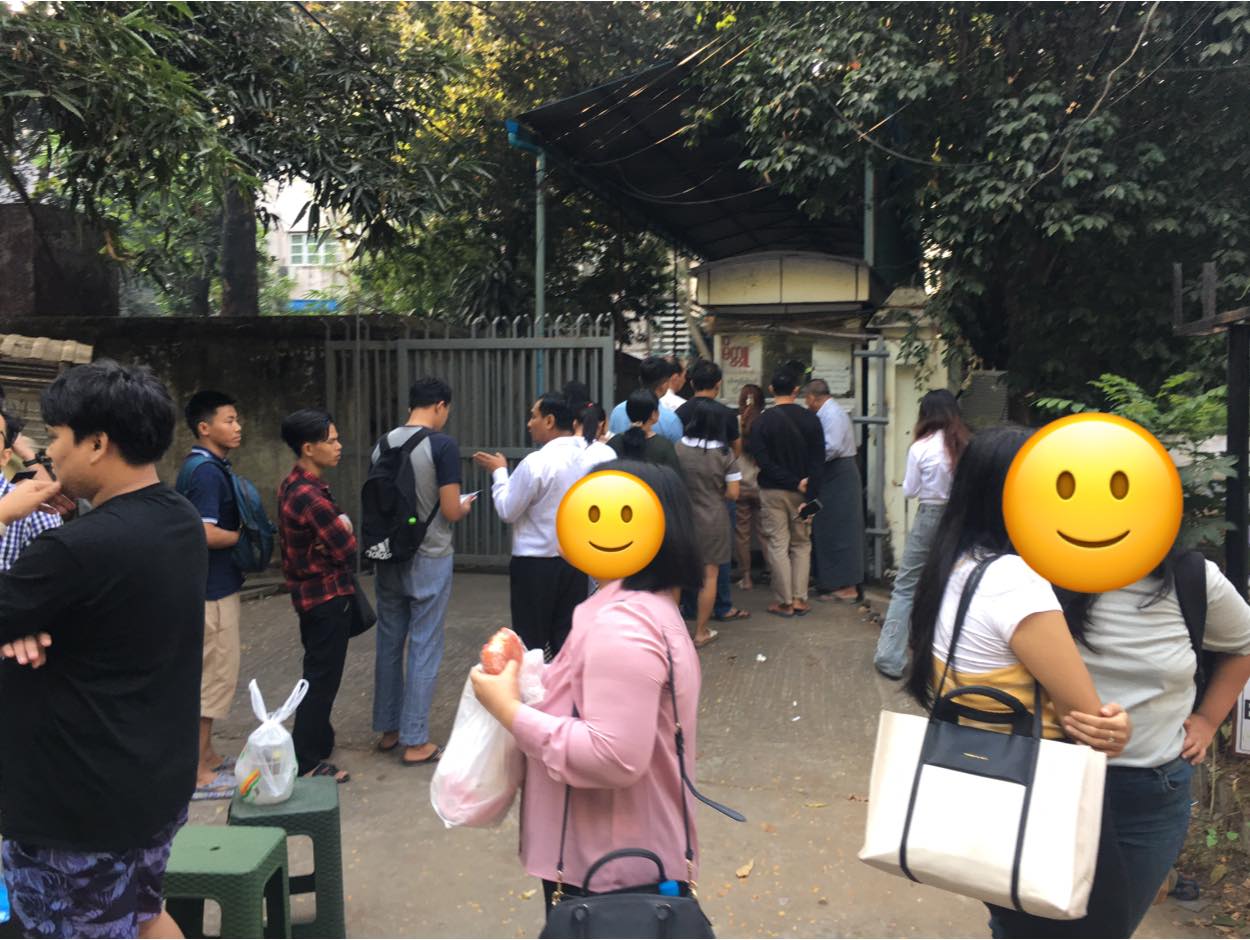
While seeing those who are waiting in line to apply for visa at the Thai Embassy
" You can't apply for passport quickly in Yangon. You have to do it according to the serial number as shown in the QR code. The people in Yangon want to get passports quickly, they have to go to Naypyidaw. If you go to Naypyidaw and apply passports quickly, you have to pay about 16 lakh kyats, I heard. Those who want to get passports ASAP, they have gone to other towns." he said.
At present, QR code appointments for passports have reached 20th July 2024. After the People's Military Service Law was approved by Sr-Gen Min Aung Hlaing, the chairman of the SAC, youths are worried and have decided to go abroad.
When making preparations, the youths firstly think about going to Thailand and because the number of Myanmar citizens who apply for Thai visa is so many, only 400 people who can apply would be accepted, Thai Embassy has stated.

- By CNI
- Category: English Section
- Hits: 555
CNI News
19 February 2024
Myanmar political crisis which emerged after a civilian government was overthrown in 2021 - everyone is questioning whether the crisis can no longer be resolved or not.
Having said that the NLD government was trying to form a government without solving a vote list dispute that took place in the 2020 general election, the Tatmadaw toppled down the NLD government on 1st February 2021 and took the State power.
After that, with protesting against the Tatmadaw, democratic elements waged armed resistance against the Tatmadaw after which Myanmar has been facing various crises including politics, economy and stability and even though the crises have been three years long, they have not been able to be solved up to now.
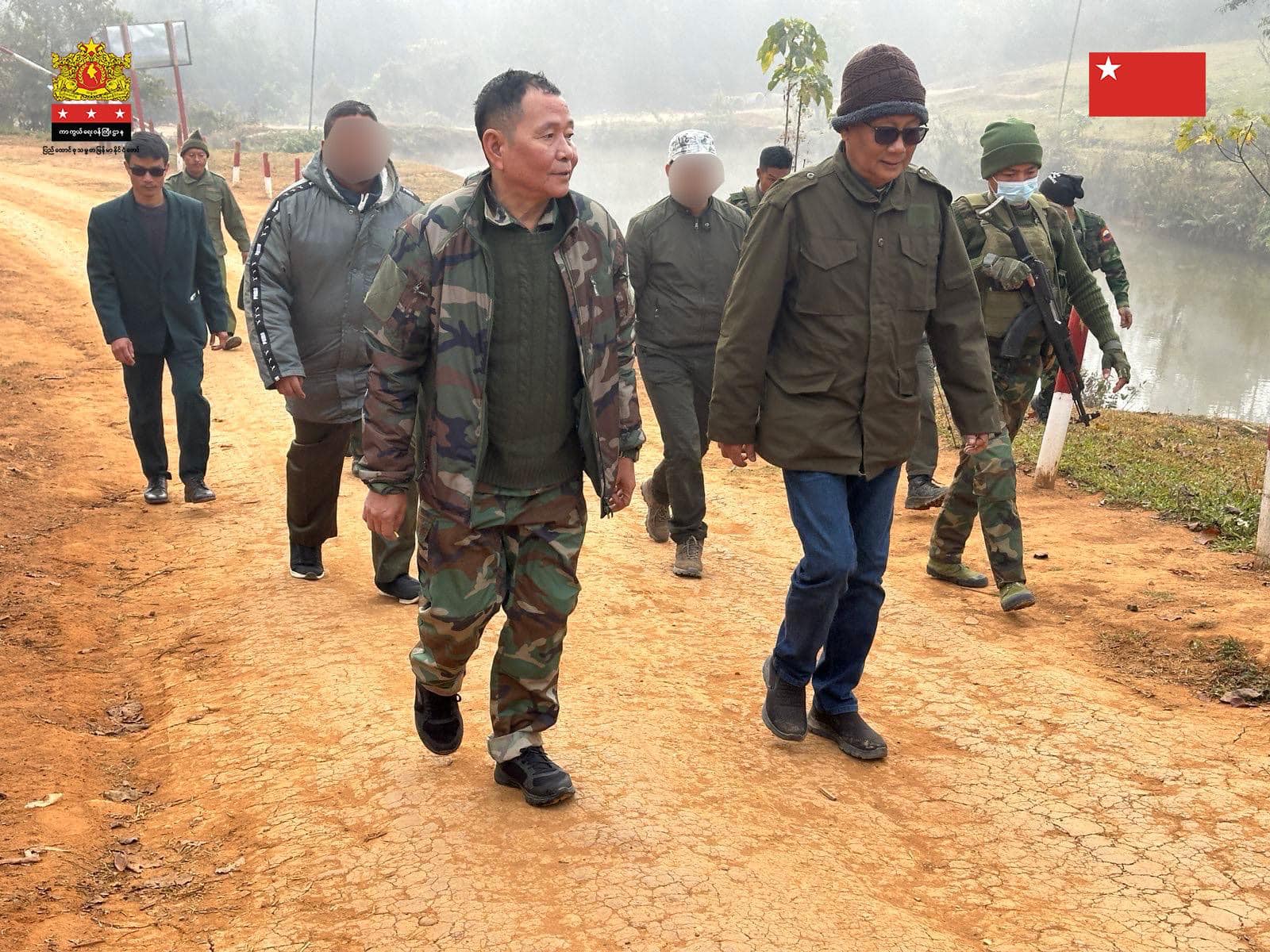
While seeing Revolutionary Force
A solution to Myanmar's political crisis depended on the will of the organizations involved in the conflict and rather than the interests of theirs or their organizations, they should give priority to that of their country, Dr.Nyo Nyo Thin, chairperson of the Yangon Watch Group, CNI News.
" Only if all the stakeholders have the desire to solve the problem, can the problem be resolved. If not, there is no way to resolve this political crisis. Only if all the stakeholders give priority to the dignity and future of the country, rather than the interests of their organizations, will it not affect the country badly. If not so, Myanmar may be the worst country in the world." she said.
The armed conflict has been long and there are also needs in various organizations. Revolutionary forces are doing more recruiting while the State Administration Council approved the People's Military Service Law and the Reserve Force Law this month.
Moreover, some leaders from the Pa-O National Liberation Organization (PNLO) and the New Mon State Party (NMSP) that are included in the ten EAOs that have signed the Nationwide Ceasefire Agreement resigned from their organizations and joined the revolutionary forces and stated that they would fight against the Tatmadaw.
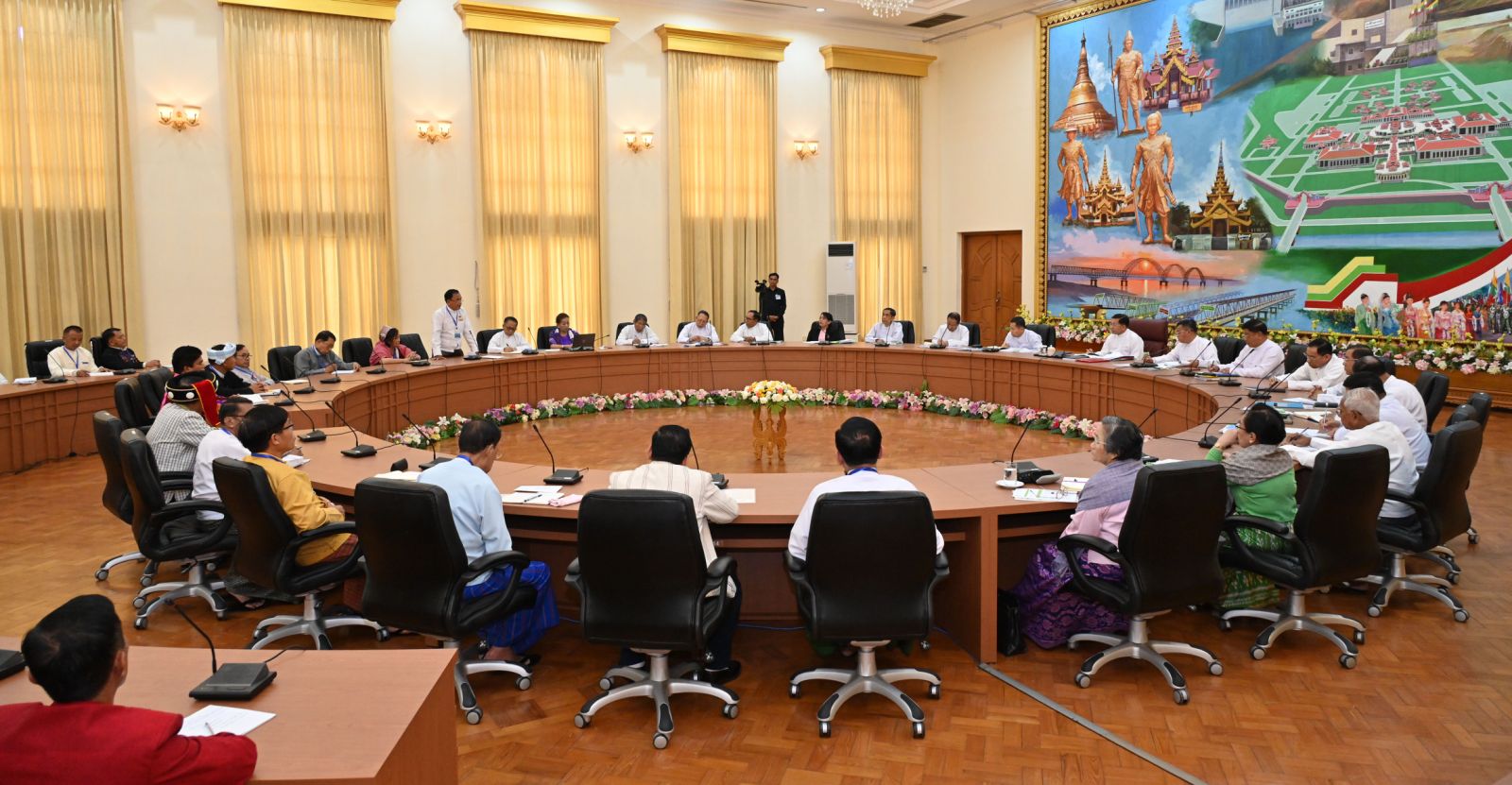
While Sr-Gen Min Aung Hlaing was meeting with political parties on 13th February 2024
China, India, Thailand, Japan and so on which were included in the NCA as witnesses needed to help solve the Myanmar political crisis, Naing Than Shwe, spokesperson of the Mon Unity Party (MUP) told CNI News.
" It is necessary to discuss so as to make everything return to normal. Moreover, countries and organizations need to help solve the conflict." he said.
Due to the domestic armed conflicts, the public is facing various crises including difficult livelihood, monetary inflation, unsafe conditions, civilian deaths, and fleeing to safety.
Although some EAOs, some political parties, the ASEAN and international organizations are trying so as to resolve the crises, it has not been resolved up to now.

- By CNI
- Category: English Section
- Hits: 2529
CNI News
17 February 2024
The delegation whom the Northwestern Command of the Tatmadaw asked for help and sent met and discussed the peace process with two Naga ethnic armed groups, the National Socialist Council of Nagaland-Khaplang/Ang Mai (NSCN-K/AM) and the National Socialist Council of Nagaland-Khaplang/Yung Aung (NSCN-K/YA), according to those close to the two groups.
The Northwestern Command asked for help to retired Lt-Col Rosanjuwho, a Naga ethnic, who used to serve a military strategist in Khamti and officials from the Naga Traditional Culture Center and sent them to the NSCN-K/YA and the NSCN-K/AM in order to discuss territorial stability and peace process.
" It's right that they met and discussed. The Tatmadaw's delegation met and discussed with the delegation of the NSCN-K/AM in Khamti. Detailed agreements have not yet been reached. The formation of militia was mainly discussed. The Tatmadaw's delegation separately discussed with the delegation of the NSCN-K/YA." said a person who is close to the two Naga ethnic armed groups to CNI News.
The Naga Social Council of Nagaland-Khaplang/Ang Mai (NSCN-K/A/M) led by Ang Mai and the Tatmadaw's delegation that contains Rosanju and delegates from the Naga traditional organization met and discussed in Khamti on 5th February 2024.
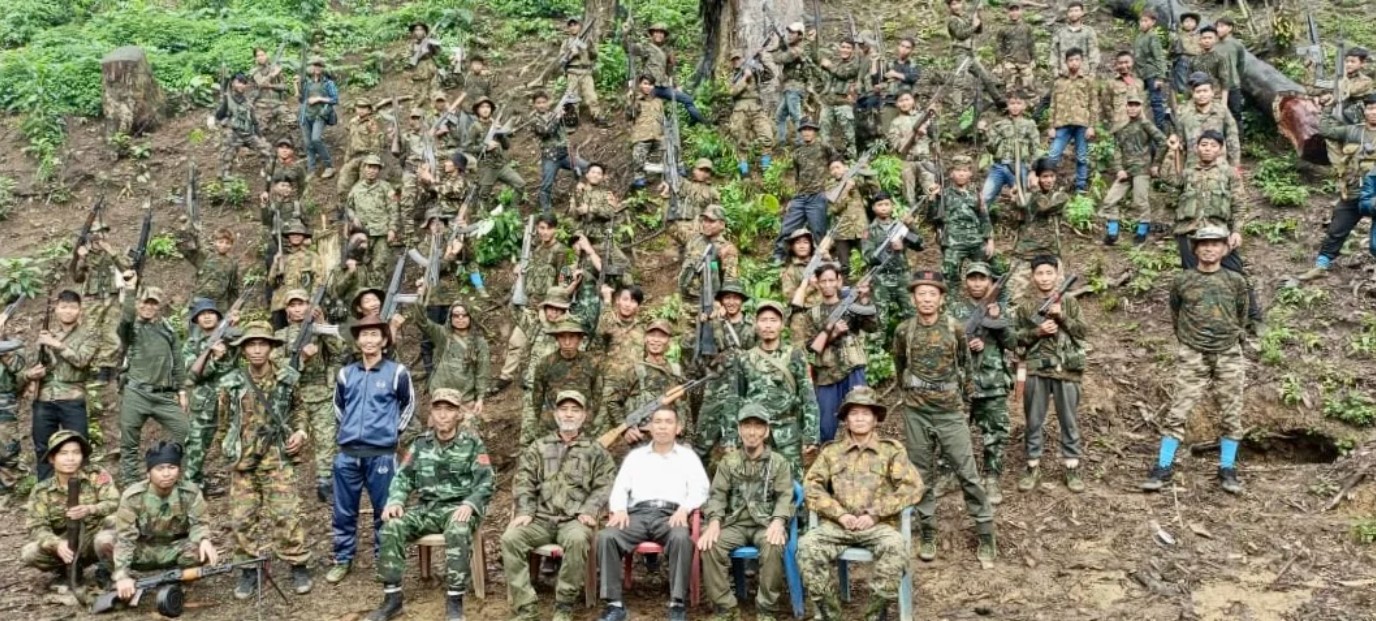
While seeing the NSCN-K/AM
The Tatmadaw's delegation discussed to cooperate territorial stability, form militia and collaborate regional development and the NSCN-K/AM accepted the discussion in principle and asked which places the Tatmadaw would allow it to govern reportedly.
The discussion between the Tatmadaw and the NSCN-K/AM was positive and the details needed to be discussed again, a person who was close to the Naga Traditional Culture Center and Naga ethnic armed groups told CNI News, adding that it had not been easy to reach an agreement with NSCN-K/YA.
" We heard that the NSCN-K/AM accepted the Tatmadaw's attitude. But the NSCN-K/YA doesn't accept. If the Tatmadaw force to make them become militia, they said they would respond. According to the understanding with the Tatmadaw, they want to go on like this. But they are still negotiating. We have to watch what will happen next." he said.
The discussion with the NSCN-K/YA was conducted by the Tatmadaw by sending its delegation to a military camp of the NSCN-K/YA reportedly.
Although the National Socialist Council of Nagaland (NSCN) was built in 1980, as there were disagreements among the leaders, in 1989, the faction led by U Khaplang was based on the Myanmar side and the faction led by Isak Chishi Swu and Muivah was based on the Indian side.
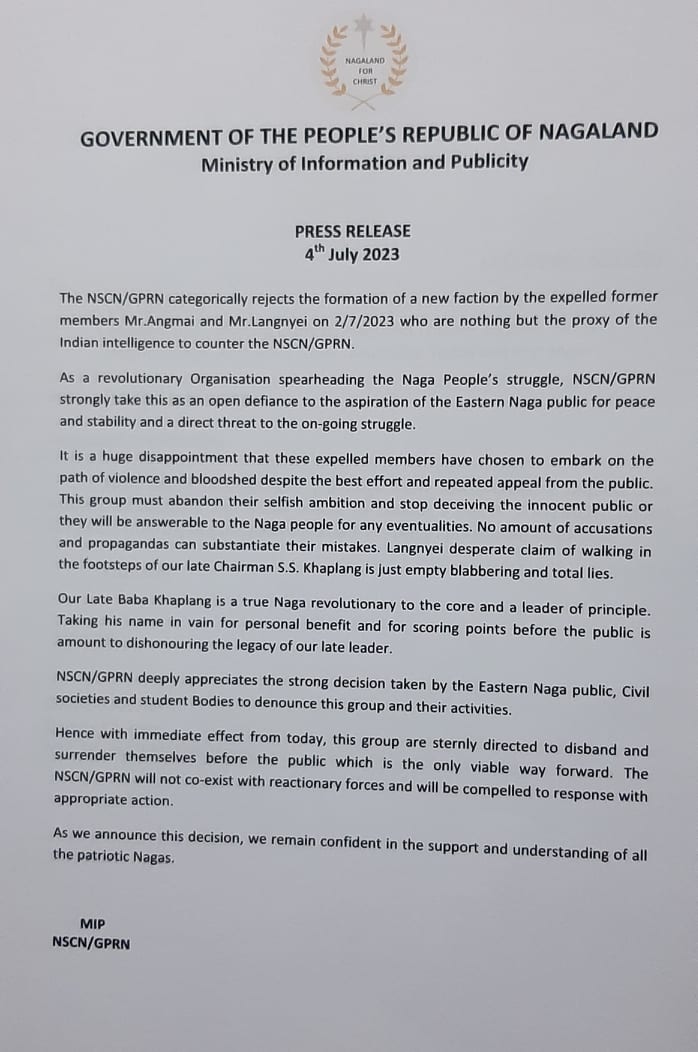
When the NSCN-K/YA stated that it has expelled Ang Mai and Lang Nyei
After the death of U Khaplang in 2017, vice chairman U Kham Ngor was appointed as the chairman of the NSCN-K in 2018. However, he was overthrown on 17th August that year and U Yung Aung was appointed as the chairman of the NSCN-K.
After U Kham Ngor was deposed from the chairmanship, he left for India with a few of his troops and made peace with India in 2020.
After that, U Yung Aung expelled deputy chief of staff Lt-Gen Nikisumi, Minister Star Swam, and chief of staff Nyamlang from the NSCN-K/YA on 29th July 2020.
Nikisumi formed the NSCN-K/NK and made peace with the Indian Government on 8th September 2021.
In the same way, U Yung Aung expelled U Ang Mai and U Lan Nyei from the NSCN-K/YA in July, 2023 and warned them to surrender after cancelling the establishment of new organization.
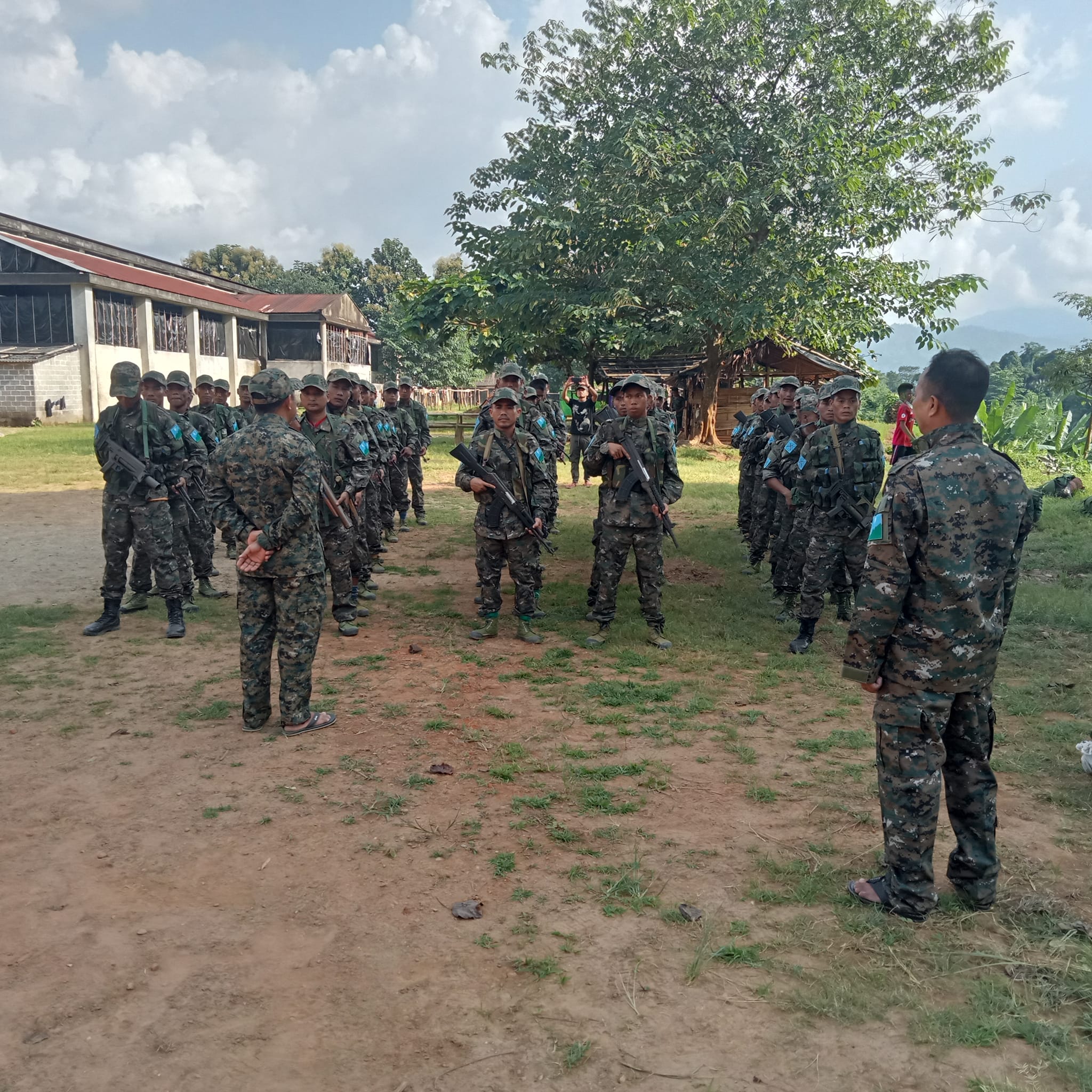
While seeing the ENDA force
At present, U Ang Mai built the NSCN-K/AM and it has been active for the liberation of Naga nationalities as a Naga ethnic armed group.
And the battles tend to break out between the NSCN-K/AM and the NSCN-K/YA.
On the other hand, former NLD MPs and U Aung Sai who was dismissed from the NSCN-K formed the Eastern Naga National Organization (ENNO)/ Eastern Naga Defense Army (ENDA) with the help of the KIA.

- By CNI
- Category: English Section
- Hits: 970
CNI News
17 February 2024
The Central Bank of Myanmar has re-tighten the export earnings policy according to traders.
If the export earnings gained from exporting rice, bean, pea, corn and rubber would be spent to import fuel and edible oil, 70 percent of the export earnings was allowed to import fuel and edible oil while 65 percent of remaining 30 percent must be sold at the price designated by the Central Bank and 35 percent could be sold at the market price in the past.
However, at present, if an individual or a company that exports products doesn't import fuel and edible oil, 35 percent of their export earnings must be sold at the price designated by the Central Bank and 65 percent can be sold at the market price, U Thant Zin Tun, vice chairman of Myanmar Corn Industrial Association (MCIA), told CNI News.
" The price of corn will decline a little because in the past 70 percent of the export earnings could be sold at the market price. We could calculate on the basis of 70/30. But now when the traders are asked to import fuel, some companies can import fuel and others can't. When we have to calculate 65 and 35 percent, we could be busier. In the past, we had to submit 35 percent to the Central Bank and 65 percent was allowed to be spent on imports. We could sell the export earnings to those who would import fuel, which was stated before. If we sold oil companies, we could sell 70 percent of the export earnings at the market price. Of the remaining 30 percent, 65 percent and 35 percent were divided again. But it has changed now. If you export corn or rice and import the products designated, 70 percent of your export earnings can be sold at the market price. Otherwise, you can sell 65 percent only at the market price. So, for the time being, the prices will be unstable." he said.
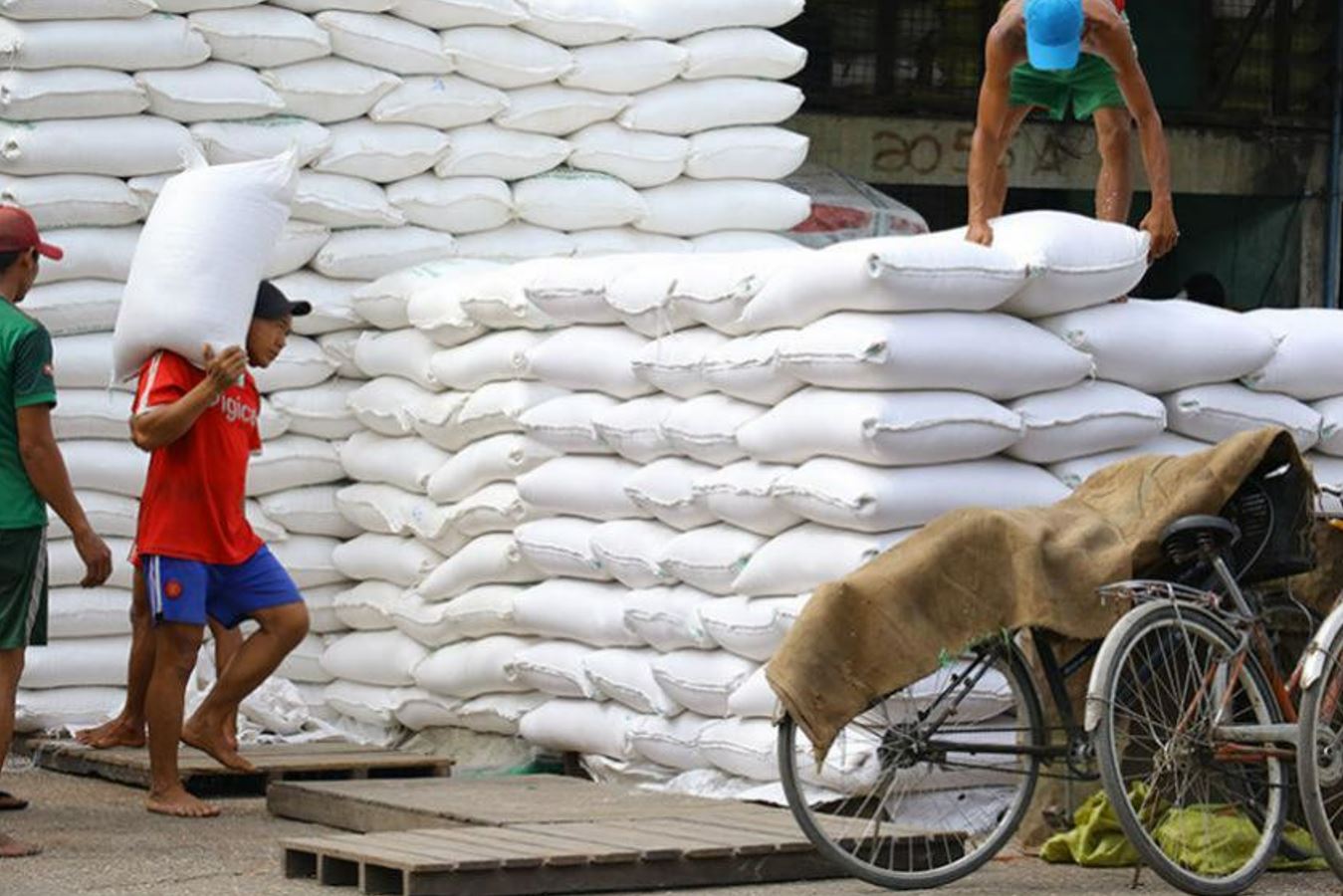
According to the export earnings policy designated in the past, if rice, bean and corn were exported, and fuel was imported, nearly 90 percent of the export earning could be sold at the market price. So, the products that would be exported could be bought at a higher price.
But at present, because the export earnings policy has been changed, the profits gained from these commodities have been reduced.
Due to the change of export earnings policy, although the export sector is not affected, traders and farmers have got less profit. As the export earnings policy often changes, traders are finding it difficult to do business, an official from the Myanmar Rice and Paddy Traders Association, told CNI News.
" In the past, 30 percent of the export earnings was divided into 65 percent and 35 percent. So, exporters were able to sell nearly 90percent of the export earnings at the market price. But now they can sell only 65 percent at the market price. So, traders find it a little difficult. The current rate is also fair. If the prices were open, it will be freer. The price of dollars also will go up quite a bit. If the policies were stable, it would be better." he said.
As the agricultural inputs were more expensive this year, although farmers expected to sell their product at higher prices, due to the change of policy, they have to be hoping the current prices do not to decline any more, Ko Min Khaing, a corn farmer from Ayeyarwady Region, told CNI News.
" Corn farmers want to sell their products at a higher price because inputs are quite expensive. They expected to sell at a little higher price. But due to the change of policy, the price of corn will not probably go up quite a bit. We have to pray that the prices do not decline kind of." he said.
In the past, 70 percent of the export earnings gained from exporting rice, bean and corn was allowed to be spent to import fuel and edible oil. Moreover, 70 percent of the export earnings gained from exporting rubber was allowed to be spent to import fertilizer.

- By CNI
- Category: English Section
- Hits: 1019
CNI News
17 February 2024
All the agencies that are sending workers to foreign countries have been allowed to submit new demand letters to the Ministry of Labor on 15th February, overseas employment agencies told CNI News.
New demand letters that were being submitted to the ministry was temporarily suspended starting from 13th February and news came out that suspension would be long until April after which submitting new demand letters has been allowed again, U Myat Thu, general secretary of the Myanmar Overseas Employment Agencies Federation (MOEAF), told CNI News.
" New demand letters can be submitted. The ministry announced that at 11:00 a.m. today." he said..
The temporary suspension of submitting demand letters from foreign countries might be related to the People's Military Service Law, the agencies reviewed. However, Myanmar nationals who will go abroad for work apply for Overseas Worker Identification Card (OWIC), they have to do more processes, agencies told CNI News.
At present, when applying for OWIC, it is necessary to fill up the slip issued by the immigration department, which is one more thing to do reportedly.
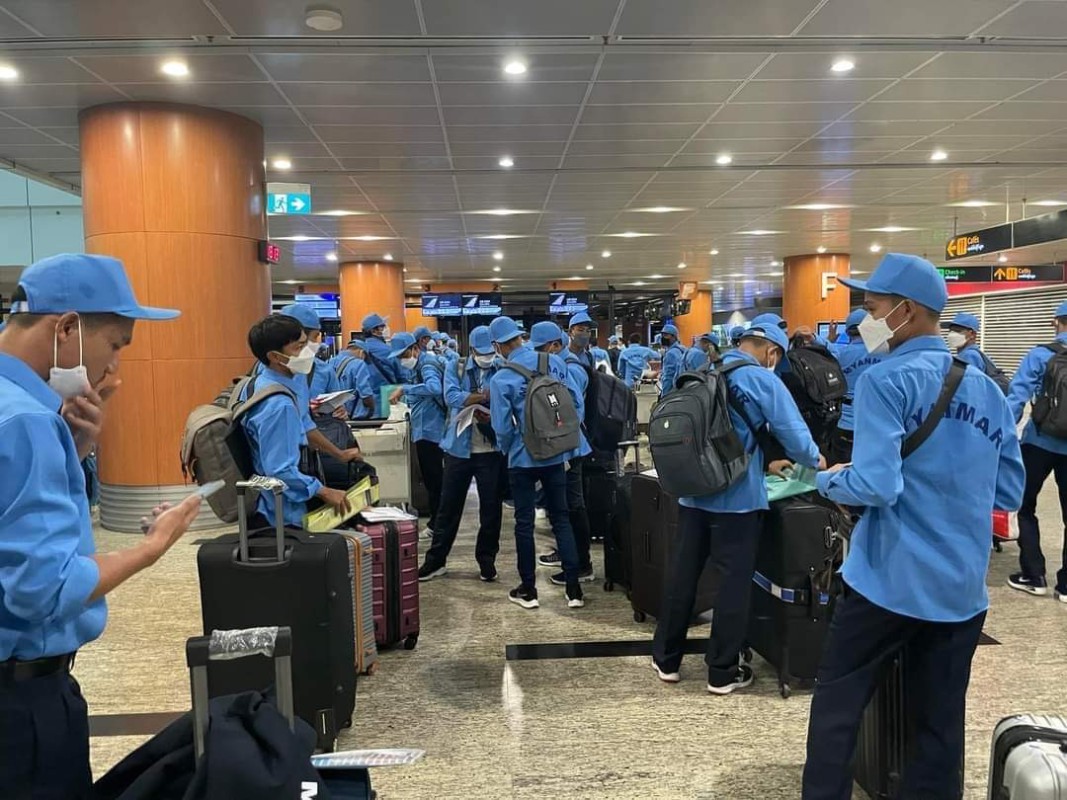
Those who will go abroad with MoU
" According to the mandatory military service law, a new committee is formed. Those who will go abroad need to have a letter of recommendation from the committee, namely biometric form, which is one more thing to do. Most of the people who go abroad are youths. They want to scrutinize the youths thoroughly. So, submitting demand letters was temporarily closed, I think. More people want to go to Japan and South Korea where better salaries are paid." said Ko Nay Oo, director from an overseas employment agency that sends Myanmar workers to Japan.
After the compulsory military service law was approved, as the number of Myanmar citizens who apply for a visa to Thailand is too many, only 400 people who could apply would be accepted a day, the Thai Embassy in Myanmar has stated.
The People's Military Service Law was approved by the chairman of the State Administration Council(SAC) on 10th February 2024.
5,000 people will be recruited for one training course every month to do the military service. Only men will be called for the Training Course No.1. Women will be called starting from the Training Course No.5 reportedly.

- By CNI
- Category: English Section
- Hits: 565
CNI News
16 February 2024
With more widely spread armed conflicts in Myanmar, distributions of hatred between ethnic groups or organizations have been found, said political analysts.
So, hatreds have been spreading and all the stakeholders should make efforts so as not to make ethnic conflicts arise.
The group that is manipulating politics in Myanmar often created an ethnic conflict and political organizations should carry out so as not to cause hatred, said Dr.Nyo Nyo Thin, chairperson of the Yangon Watch, told CNI News.
" In fact, the groups that are manipulating politics tend to create ethnic conflicts in successive ages. So, the public need to beware of it. If an ethnic conflict arose, the public would suffer from it. Any ethnicities are our people. So, our people need to beware of political tricks cool-headedly and to evade the conflicts. Hatred is not a good thing. The religion of any country doesn't encourage the hatred. So, relevant political organizations should carry out so as not to spread hatred among the public." she said.

While seeing a warship of the Tatmadaw that has been captured by the AA
The letters that forbid the people not to buy goods at the shops owned by Rakhine people were sticked in Yangon and Mandalay a few days ago.
Before that, the battles were severely breaking out between the Tatmadaw and the Arakan Army (AA) in Rakhine State and the AA announced on 11th February that it was able to sink three warships of the Tatmadaw on 7th and 8th February.
Over 600 people including children, men, women, government staff and the unwell, aboard a military vessel were killed by the AA on 8th February and it denounced the AA that committed the killings, Myanmar Farmers Development Party stated on 13th February 2024.
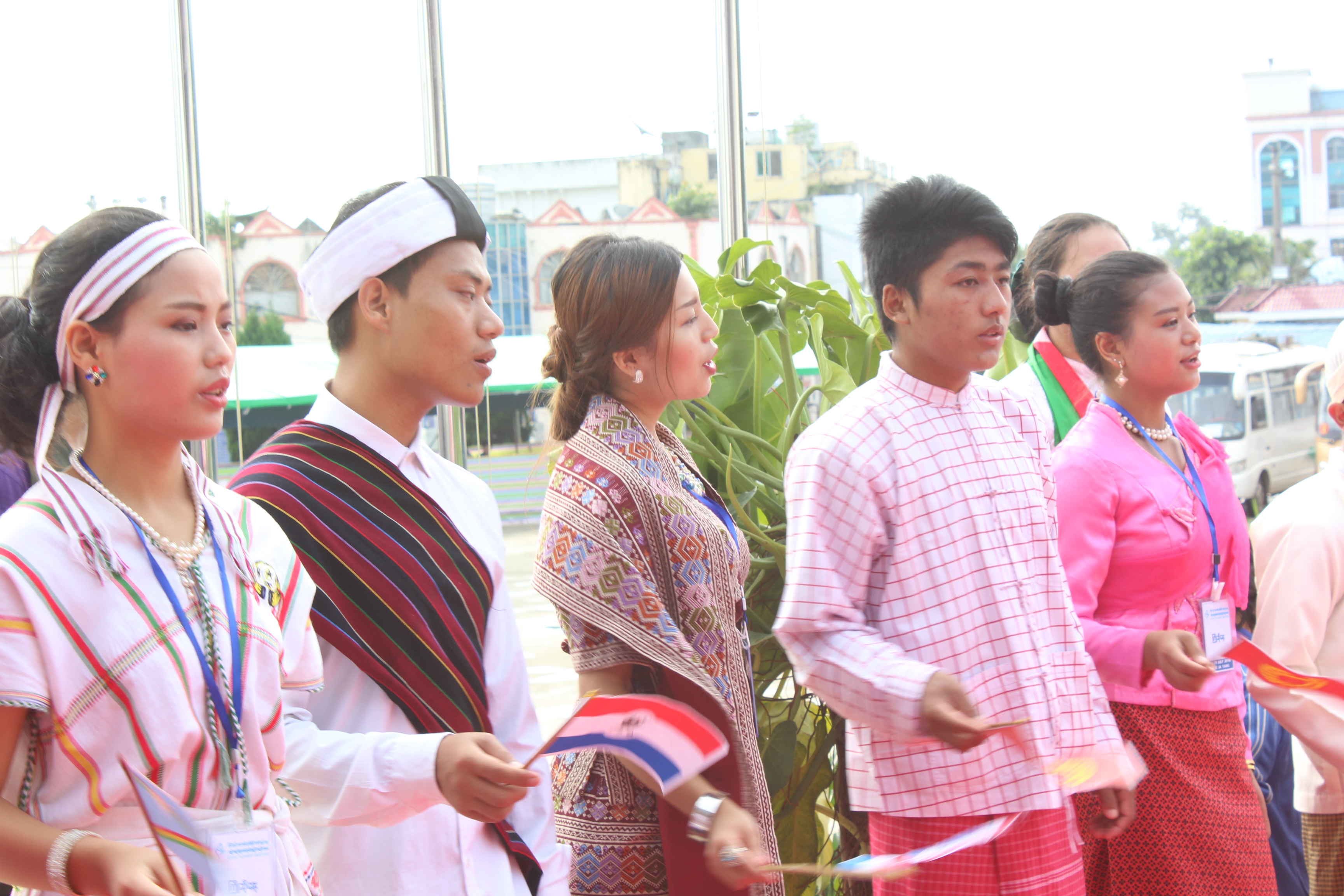
While seeing a variety of ethnicities
"If the Information Team of the SAC stated the piece of news, Rakhine people in Yangon and Mandalay could get into trouble. Our statement denounced, targeting the AA. We don't mean Rakhine people." said U Thet Zaw, an advisor of the party.
In spite of the distribution of anti-Arakanese letters in Yangon and Mandalay, the public understood very well that it was creating an ethnic conflict and the ethnic conflict would not take place, a Rakhine politician reviewed.
There are 135 indigenous ethnic groups in Myanmar and in spite of many different cultures, traditions and customs, efforts should be made so as not to cause ethnic conflicts and for the peaceful co-existence, politicians said.

- By CNI
- Category: English Section
- Hits: 515
CNI News
16 February 2024
In collaboration with the forces of the Spring Revolution, it would fight against the Tatmadaw, the breakaway New Mon State Party stated on 14th February 2024.
The New Mon State Party (NMSP) signed the bilateral ceasefire agreements with the State Law and Order Restoration Council (SLORC) in 1995 and then with the State Peace and Development Council (SPDC) and then with the government led by U Thein Sein at the state and union levels.
After that, the NMSP signed the Nationwide Ceasefire Agreement(NCA) on 13 February 2018.
The NMSP, according to the NCA, made constant efforts to find a political answer to political problems and discussed with the State Administration Council three times.
Although the NMSP presented and discussed the current political problem could be solved by all inclusive political dialogues and the principles of federalism that their party wanted, the results expected did not come out at all, the breakaway NMSP stated.
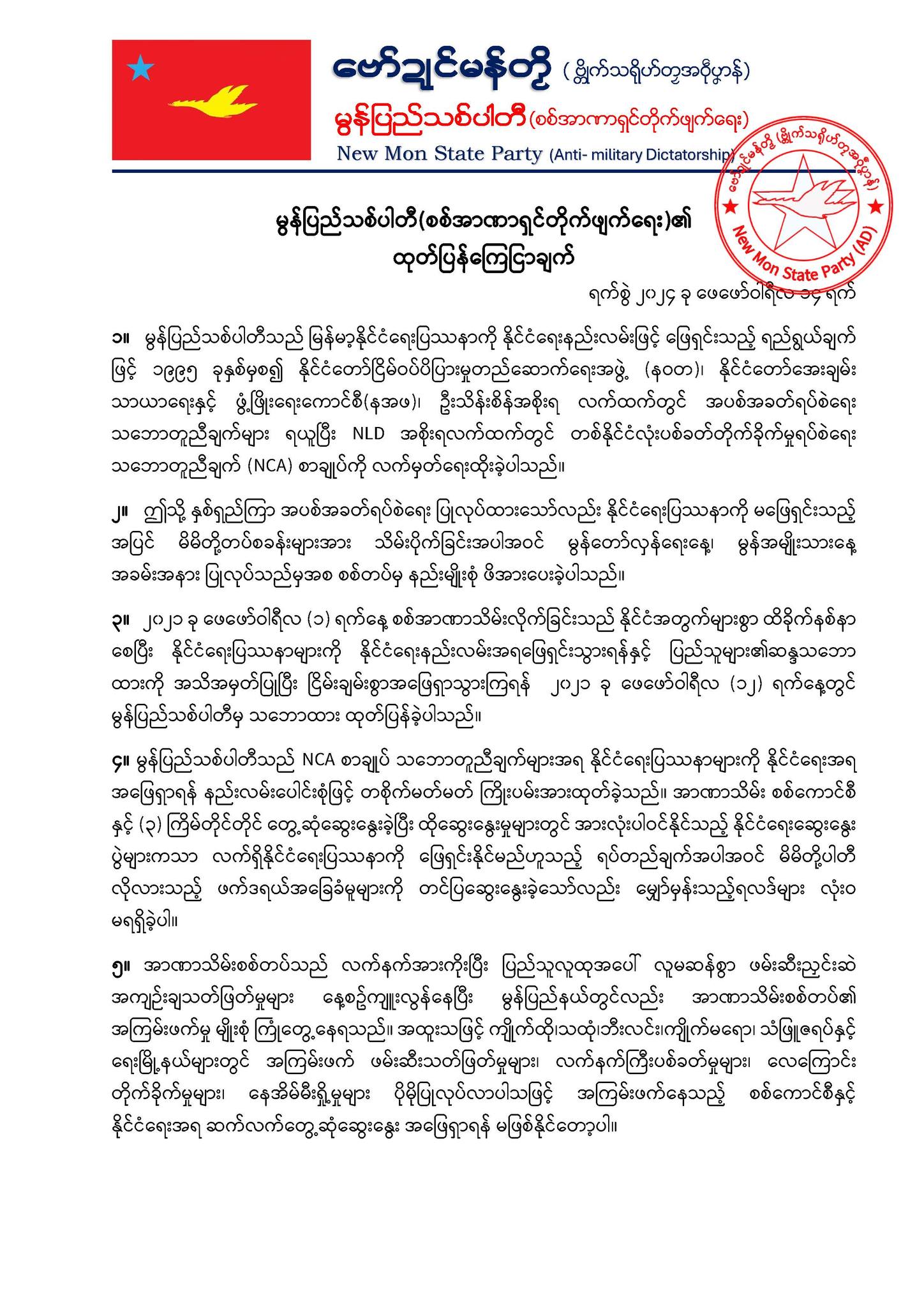
While seeing the statement by the breakaway NMSP
"The breakaway NMSP believes that ending the military dictatorship or any dictatorship is the only way for the emergence of a federal union in which there are national equal rights and self-determination that we desire and for the protection of the people. Although the belief was thoroughly discussed at the 11th party conference, the party made a decision to communicate with military council, standing on the Bilateral Ceasefire Agreement that was signed in 2012, which was not accepted at all by the breakaway NMSP," the breakaway NMSP stated.
After that, general secretary of the New Mon State Party Naing Zeya, Deputy Chief of Staff, Brigadier General Salun Htaw, some party leaders, commanders, majors, lieutenants, corporals and privates broke away under the name of the New Mon State Party (Anti-dictatorship).
So, chairman of the NMSP Naing Han Thar, vice chairman Naing Aung Min, chief of staff, secretary (1) Naing Hla Win will continue the NMSP and the party including six other NCA signatories discussed the peace processes with Lt-Gen Tun Tun Naung, chairman of the National Solidarity and Peacemaking Negotiation Committee (NSPNC) of the SAC in Naypyidaw on 13th February 2024.

- By CNI
- Category: English Section
- Hits: 531
CNI News
16 February 2024
Due to the requests of veterans that they wanted to serve again in the defense of the nation, the reserve force law was approved, said Sr-Gen Min Aung Hlaing, chairman of the State Administration Council (SAC).
He said the above while meeting with officials from the political parties that have been registered on 13th February 2024.
The Reserve Force Law that was enacted with Law No.28/2010 under the State Peace and Development Council (SDPC) in 2010 must take into effect starting from today according to the section.1, sub-section (b).
" The reserve force law has been approved because veterans' requests that they want to serve again in the defense of the nation have increased. All the veterans won't be called and only suitable ones will be." said Sr-Gen Min Aung Hlaing.
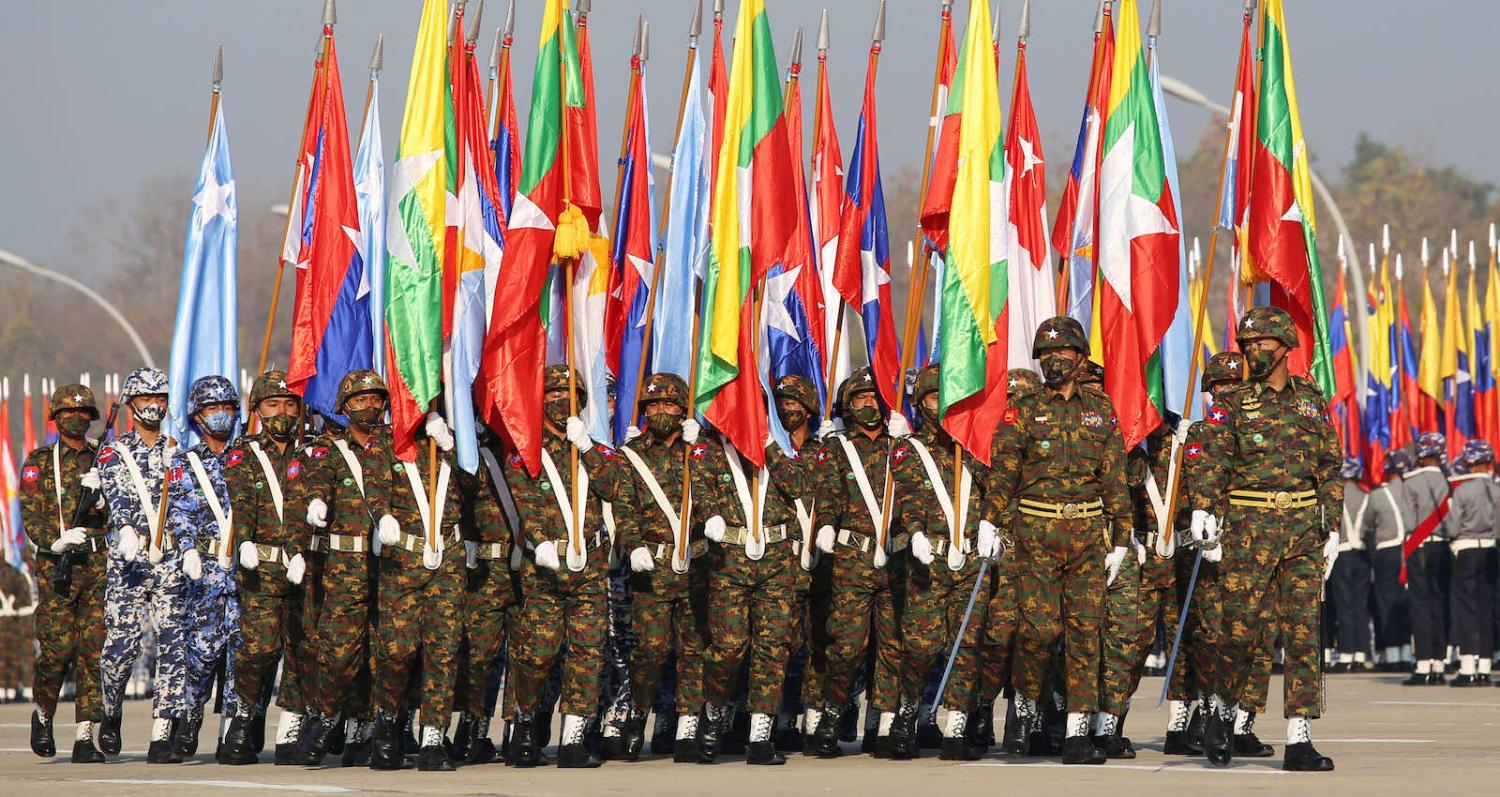
While seeing Myanmar Tatmadaw
In the same way, the People's Military Service Law, a law that every citizen must do military service, would be exercised for the first time, the SAC stated. Defense strength would increase by implementing the two laws and it was necessary to make the economical driving force strong so that defense driving force would be strong, said chairman of the SAC.
The People's Military Service Law was before and it would be implemented only now. Moreover, only a limited number of the population would be recruited, U Thet Zaw, a political commentator, told CNI News.
" The People's Military Service Law was activated the other day (10th February 2024). But the people have nothing to worry about the law, I think because Maj-Gen said that 5,000 people would be called at one time. The population has been limited. There's a limitation about the budget. There are limitations about the facilities and places. The reason why the mandatory military service law is implemented is that to tell you frankly, most young people aged from 18 to 35 don't understand 'our three main causes'. We have to explain it to them to make them understand. I think they won't be asked to fight on the battlefield kind of." he said.
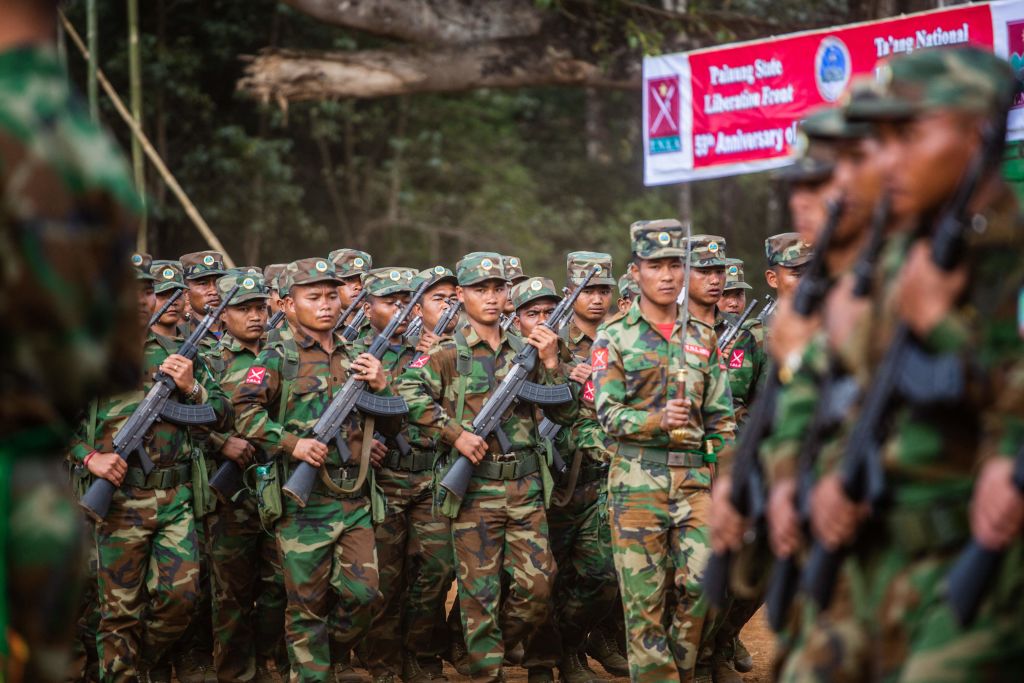
While seeing an ethnic armed group
At a time when political attitudes are divided and a civil war is going on in Myanmar, the People's Military Service Law could not be implemented, politicians pointed out.
The Tatmadaw toppled down the NLD government on 1st February 2021, saying that the NLD was trying to form a government without solving the vote list dispute that took place in the 2020 general election and then the Tatmadaw has been taking power after declaring a state of emergency. up to now.
After that, democratic elements have been waging armed resistance against the Tatmadaw in order to overthrow it. At present, the battles are taking place between the Tatmadaw and some EAOs/PDF joint forces across the country.



